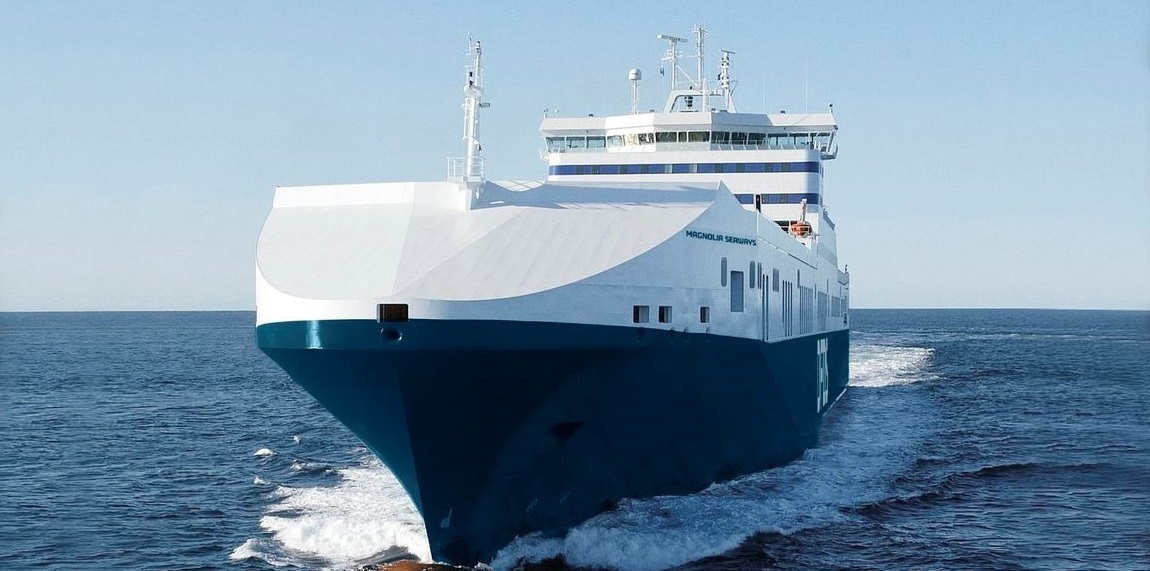Following a visit by the French Minister for Foreign Trade, Attractiveness and French Nationals Abroad, Olivier Becht, DFDS commits to investing in battery-powered vessels to decarbonise the maritime traffic across the English Channel.

Carbon-neutral traffic across the English Channel has moved another step closer. Today, the French Minister for Foreign Trade, Attractiveness and French Nationals Abroad, Olivier Becht and CEO of DFDS, Torben Carlsen, met to discuss decarbonisation of the shipping sector and the electrification of maritime traffic across the English Channel. DFDS commits to invest in innovation and technology and deploying a fleet of battery-powered vessels in the Eastern Channel by 2030.
Because of the relative short distance between the two countries the routes are optimal for electric ferry transport.
“We have a shared ambition with the French Government to accelerate the transition to a greener future for the shipping industry. This is not an easy task. It requires significant investments in innovation, technology and infrastructure, and collaboration and partnerships between the public and private sectors. But I am positive that we are on the right track. We will invest in green vessels and cooperate with ports and governments on both sides of the channel to decarbonise cross channel transportation,” says Torben Carlsen, CEO of DFDS.
The English Channel is one of the busiest shipping corridors in the world. It links two of the world’s biggest economies and accounts for 33% of the trade between the EU and the UK. Earlier in the year, DFDS and the Port of Dover, Port Boulogne Calais, and Dunkerque-Port signed a memorandum of understanding to collaborate on decarbonising maritime traffic on the Dover Straits.
Infrastructure and power supply is key for the green transition
The green transition of maritime transport not only relies on the ships at sea. A sufficient power supply on land and infrastructure to accommodate recharging facilities in ports are equally important to be able to complete the fleet electrification.
“The green transition is a complex challenge that requires all hands on deck. We need support from public authorities, infrastructure parties, utility providers, customers, and suppliers. I am happy to continue our cooperation with the French government to accelerate the decarbonisation and enable green transport corridors across the English Channel,” says Torben Carlsen.
In 2020 DFDS launched a two-staged climate action plan with a short-term objective of reducing the relative CO2 emissions of its ships by 45% by 2030, and secondly a long-term objective of being carbon neutral by 2050. The electrification of the Channel fleet will be an important milestone in achieving these objectives.
In France, DFDS has 5 ships under French flag and employs 1,200 people, including 800 French seafarers.